Hong Kong’s lucrative pawnbroking industry has withstood the test of time. It has gone through drastic changes in line with the advance of technology, striving to become a ‘universal and borderless’ business. Danny Xu reports in Hong Kong.
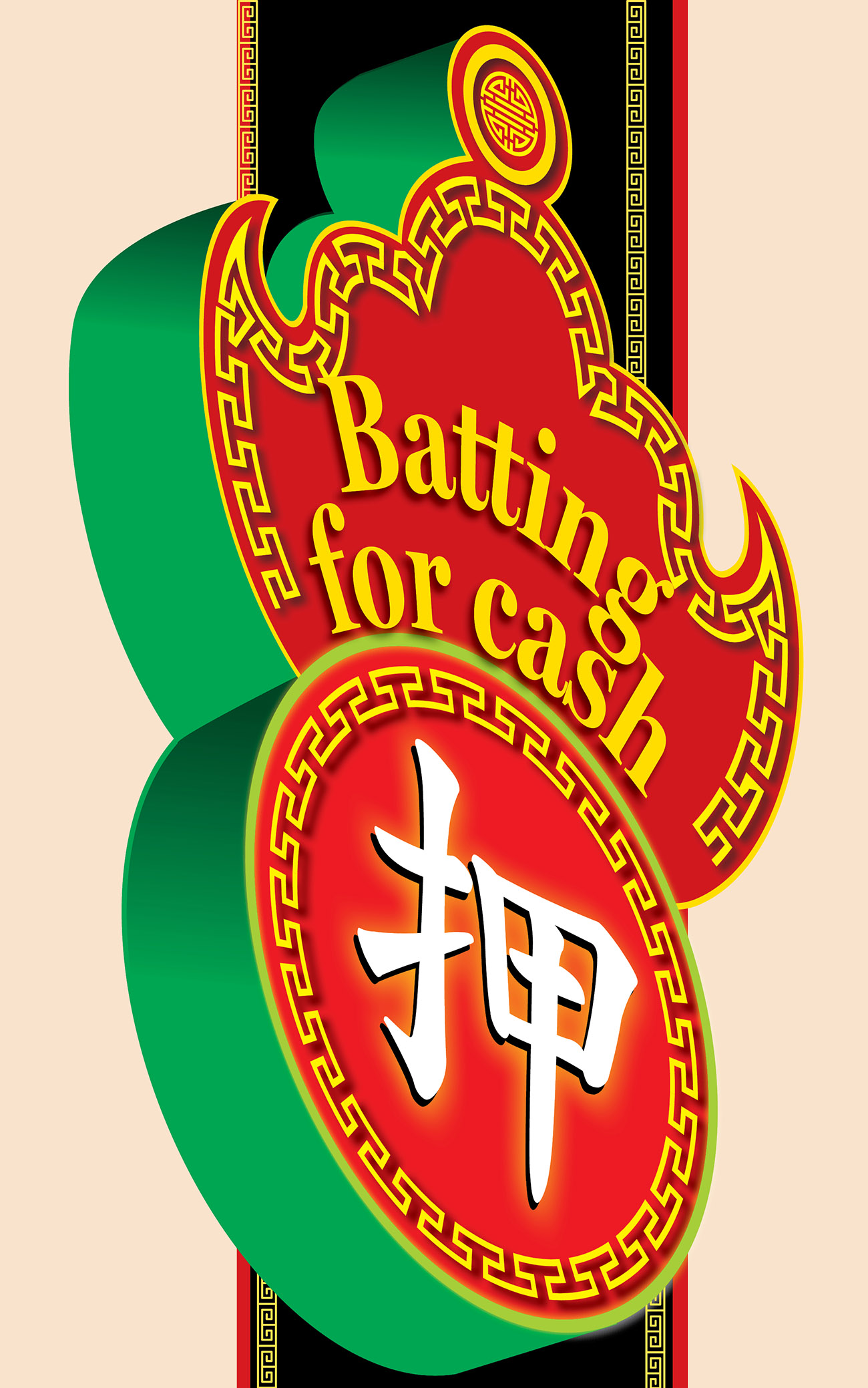
Patronizing a pawnshop is often viewed as a stigma in Chinese culture and is associated with one being in dire straits. On the contrary, pawnshop customers, including businesspeople, may also be held in esteem, with the resources to ride out hardships.
Hong Kong’s pawning industry — a time-honored and lucrative business — has flourished for decades, particularly in difficult times, as people hock their personal possessions for fast, short-term cash to tide themselves over in emergencies.
The city’s ubiquitous pawnshops are distinguishable by their unique signs depicting an upside down bat holding a coin, symbolizing good fortune, and being an inalienable part of Hong Kong’s nocturnal allure. With old and new pawnshops operating under diverse conditions, a subtle collision unfolds between an ancient industry and a modern metropolis.
Stepping into Cheung Kong Pawn Shop in Mong Kok, one is immediately greeted by the neat interior. The store exudes an air of refinement with its carefully curated display of cultural relics, akin to a miniature museum.
Chan, who wanted to be known by his surname, is a veteran with more than a decade’s experience in pawnbroking. He oversees the shop’s operations with a trusted colleague. Recalling how he started out, Chan says every novice in the industry is fortunate to have been guided by a master, ushering him or her into the realm of pawning and showing him or her the ropes. It would be ultimately up to the apprentice to refine his or her skills through practice.
READ MORE: A skyline dotted with splendour
Identifying items that can be pawned, such as gold, jewelry, luxury watches, jade and electronic products, and assessing their value is an invaluable skill to be picked up and mastered. “For paintings and ceramics, we have to be cautious as there is a good chance of them being fakes,” says Chan, holding a magnifying glass in his hand.
Besides attending to customers, Chan never stops upgrading his professionalism and keeping himself updated about prevailing market conditions, such as prices of metals and luxury goods.
According to Chan, an apprentice may need several years to pick up the trade, depending on ability and willingness to learn. “Recruiting people who haven’t been working in this field is rare. We rely mainly on referrals from those within the trade,” he says, emphasizing the tight-knit nature of the profession.
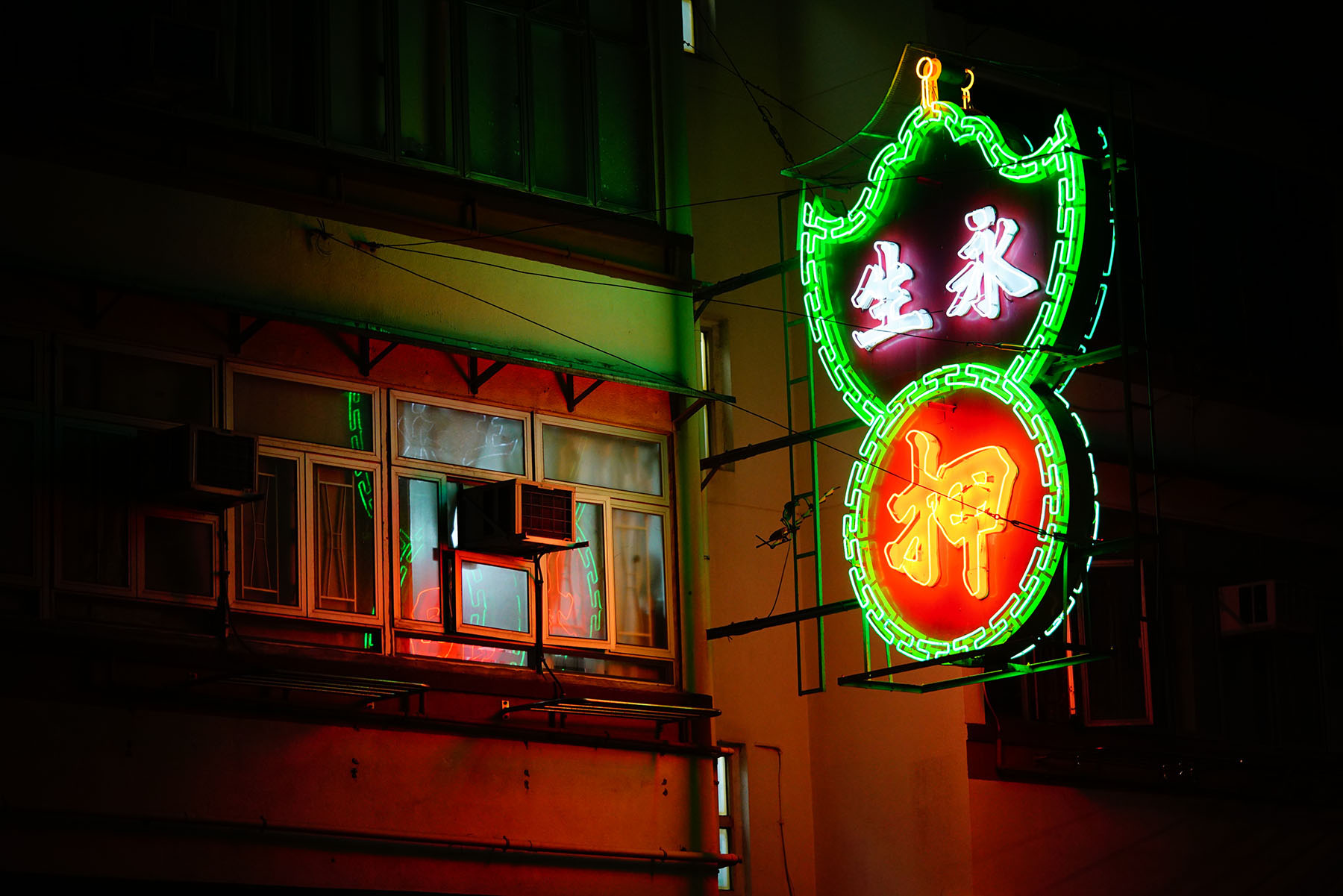
Fast deal
Identifying items to be pawned calls for experience, but the process is fast and simple. Customers present their items for valuation, which is determined by their level of “wear and tear”, as well as how much they’re worth in the second-hand market. If a customer agrees to the price, the shopkeeper will verify his or her identity, issue a pawn receipt and grant the loan agreed to by both sides. Typically, a transaction can be clinched within minutes. “Customers can haggle with us, and we may consider the price requested if it’s reasonable,” says Chan.
Redeeming a pawned item is swift and isn’t complicated as long as the period of redemption remains valid. When a customer returns to the pawnshop with the receipt, he or she settles the principal amount, plus the accrued interest, and the shopkeeper, after verifying the payment, returns the item to the owner.
Currently, a pawnshop in Hong Kong charges a monthly interest payment of HK$3.50 ($0.45) on every HK$100 of the amount a customer receives for a pawned item. The interest is due within four months from the date the item is pawned, calculated under the lunar calendar.
A customer can also redeem an item at any time on or before the date matures by settling the principal amount and interest in full. They can also pay the interest on or before the date of expiry and extend the pawning period for another four months on the same interest rate. However, if a customer fails to redeem the pawned item within the stipulated period, the pawnshop reserves the right to sell it off in the secondary market.
“After the four-month period expires and if the customer fails to redeem the item, we will retain the collateral for a brief period in case the customer is unable to do so within the specified time frame before selling it,” says Chan. “We give top priority to ensuring the safe upkeep of pawned items in our possession. We have a comprehensive security system linked to the police station to ensure that the police can respond swiftly and effectively if necessary.”
When asked about the number of customers he has, Chan maintains it’s inconvenient to reveal the figures. However, he says they include those who need cash urgently, as well as people who require funds for business purposes.
Most of Cheung Kong Pawn Shop’s clientele live nearby, while some pawn shops on Hong Kong Island also serve expatriates.
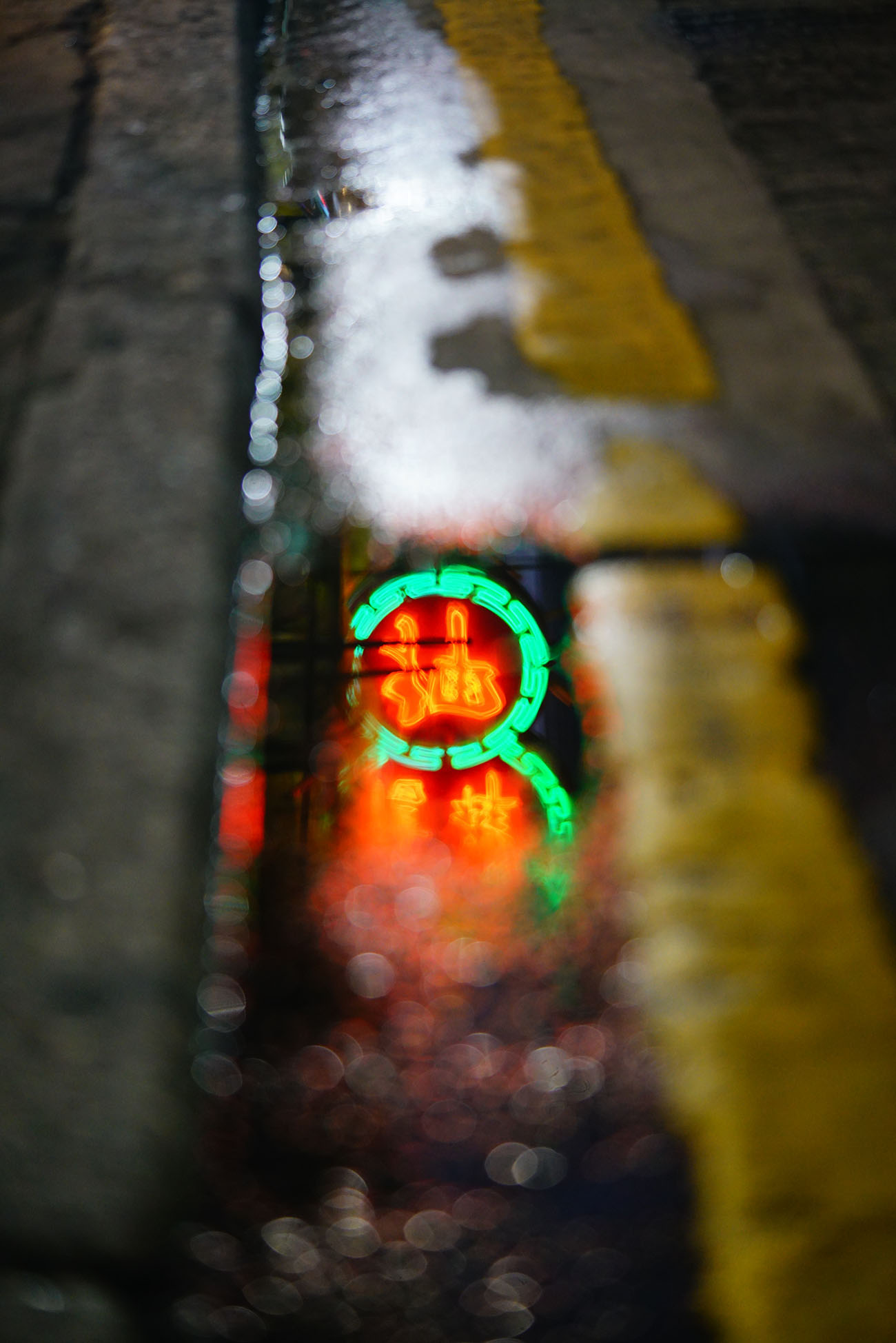
Helpers’ helper
Shing Fung Pawn Shop, located near the Central MTR station, is patronized mostly by expatriates, especially foreign domestic helpers who congregate in the city’s prime financial district on Sundays. The pawnshop, manned by three employees, often finds itself doing a roaring business on weekends. Each transaction takes an average of about two minutes.
According to a security officer working nearby, the pawnshop sees overseas domestic helpers as a key customer pool. “I call this a Hong Kong spectacle. Many foreign domestic helpers turn to pawnshops when they need cash immediately before they get their salaries.”
An overseas helper, who requested anonymity, told China Daily she has long been a customer of Shing Fung Pawn Shop. She says the main advantages of pawnshops are their convenience and efficiency. They’re meaningful as they can help those in times of need, and she always redeems her pawned belongings on time.
“I don’t always rely on pawnshops, but it’s important to have them,” she says.
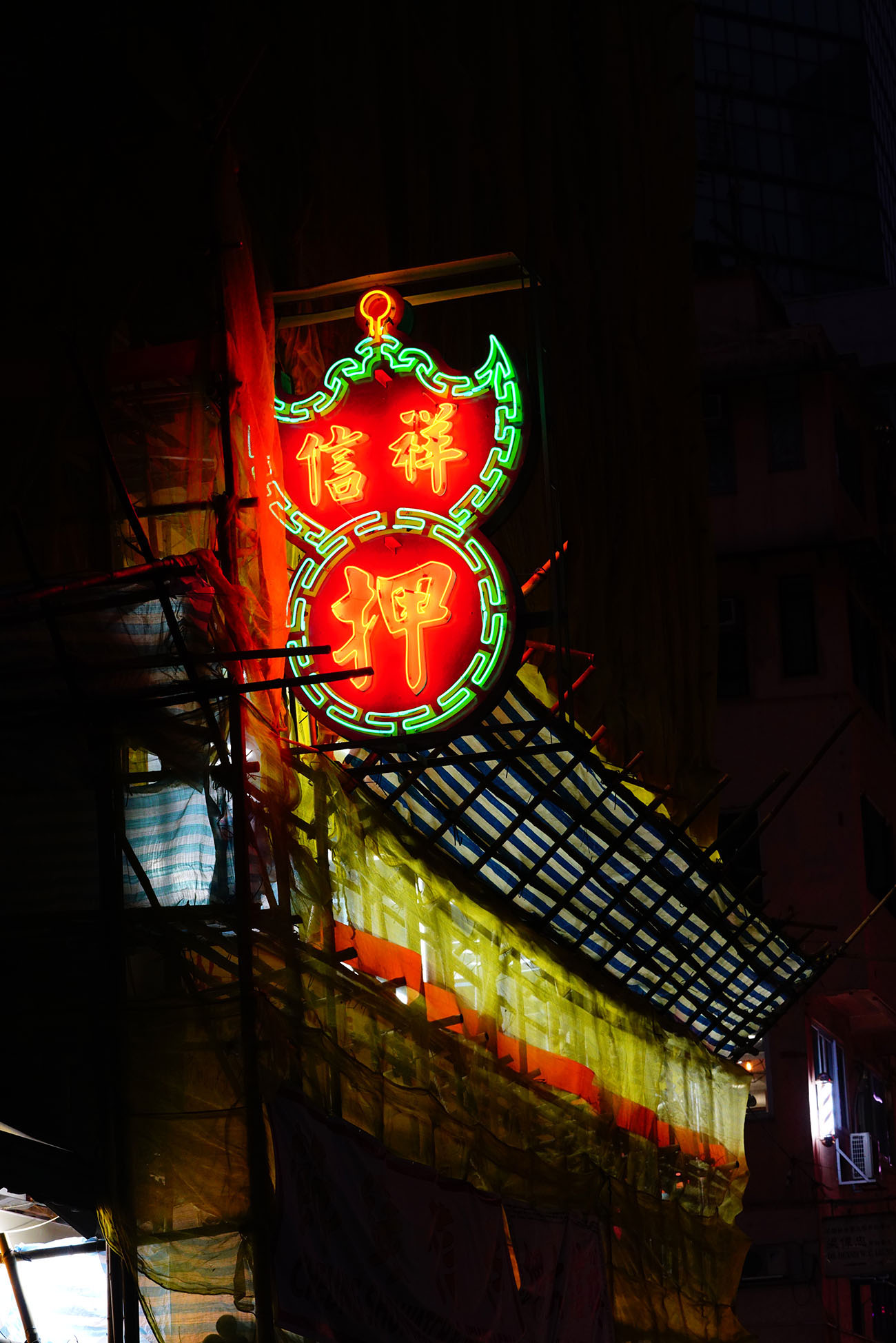
Way out
As a relatively traditional industry, pawnshops have typically maintained a low profile and rarely resort to active advertising. But, gradually, more of them have taken the initiative to attract customers, such as improving their facilities. Tall counters have traditionally been a hallmark of pawnshops with their staff working high above as a customer enters the store, creating an “intimidating environment”. But now, some of them have counters like those in banks, emphasizing equality between customers and shopkeepers. Some have even incorporated dedicated meeting rooms with snacks and drinks to enhance overall customer experience. The meeting rooms place importance on protecting clients’ privacy, offering a secure and uninterrupted environment for negotiating deals.
Another key advance in the industry is utilization of the internet, with online pawning having gained popularity in recent years. The Uncle2 Pawn Marketplace app, for instance, enables customers to upload photos of their items to be pawned onto the app, which then assesses the value of the items. Customers can send the collateral via courier services for authentication if they accept the offer. The app even employs artificial intelligence tools for valuation and uses QR codes to track transactions. Besides being a matching platform for customers and pawnbrokers, the app has an e-commerce channel for the disposal of assets held by pawnshops.
“Our mission is to reimagine the pawnshop funding process to accelerate the deployment of pawned assets locally and globally. Pawning will be promoted from Hong Kong to Asia and the rest of the world, to become universal and borderless,” says a post on the Uncle2 website.
Expanding the business scope is another option some pawnbrokers have pursued. Oi Wah Group — one of Hong Kong’s leading players in the industry — also offers property mortgage evaluation services. Clients can provide the necessary information through the group’s website, including the desired loan amount, loan period, building category, owner’s details, the building area and other relevant details. The group even operates a specialized property mortgage center in Wan Chai district on Hong Kong Island.
The changes made in the pawnbroking trade reflect a shift towards a more customer-oriented approach, leveraging technology and diversifying services to cater to a wider range of customer needs.
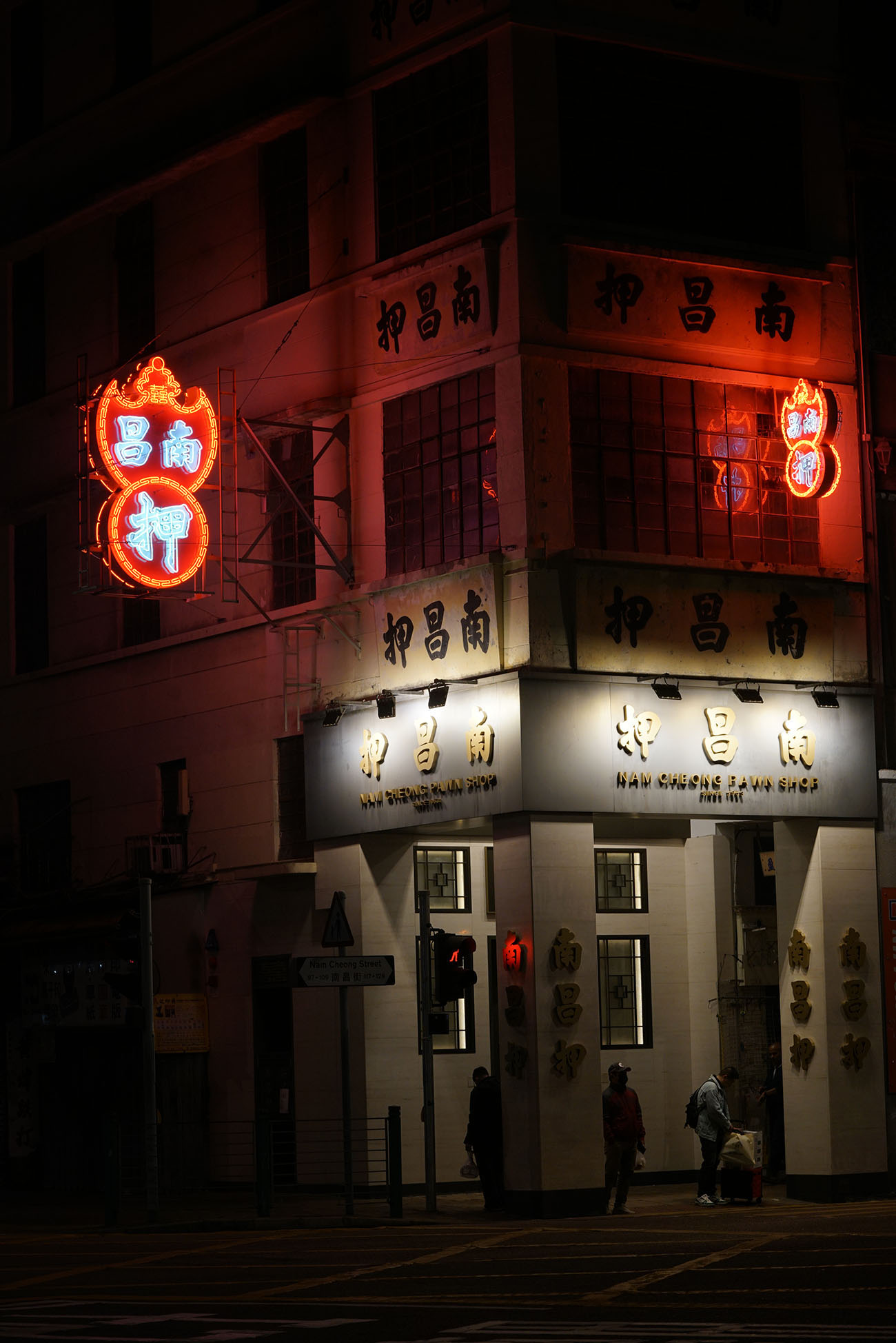
A second life
The pawnshops that are still in business are striving to keep pace with Hong Kong’s ever-evolving landscape, while those that have ceased operations have become an integral part of the city’s cultural fabric in a different way.
Woo Cheong Pawn Shop on Johnston Road, Wan Chai, had been run by the Lo family, a prominent pawnshop trader, in the past century. It had been an integral part of the district’s business and social life for more than five decades before being revitalized under an urban renewal program. The store and its adjoining pre-war shophouses were included in the Urban Renewal Authority’s (URA) Johnston Road redevelopment project, which was completed in the 2008-09 financial year.
The URA, established in 2001, is tasked with urban regeneration with a “4Rs” strategy — redevelopment, rehabilitation, preservation and revitalization. According to the URA, the overall planning vision of the Johnston Road project was to upgrade the existing neighborhood and enhance the vibrancy of street life, thereby sustaining the district’s economic growth. The key is to strike a balance between respecting the existing heritage elements and introducing a fresh, identifiable design for the new components, where the “new meets the old” in a harmonious, yet distinguishable manner.
ALSO READ: Access to cash
By realizing its vision, the project has created an environment that supports local businesses, encourages social interactions and enhances the area’s overall attractiveness. “While the original function of the Woo Cheong building as a traditional pawnshop may have been reversed, the revitalization has brought positive changes to the surrounding areas,” the authority said.
The URA believes that conservation should go beyond preserving buildings. The city’s existing building fabric should be upgraded so that the buildings can be adaptively reused, giving them a new identity to extend their lifespan. “Positive feedback was received from residents on the successful operation of the facilities in the historic buildings. The co-existence of the old and the new that adds synergy to the locality and modification of the historic buildings for adaptive reuse exemplifies how conservation can be achieved in the Hong Kong context,” the URA said.
As night falls, the pawnshops’ glittering neon lights buzz back to life. They’re like old friends — you may not visit them often or only think of them when you need them. But they’re always there to give you a hand.
Contact the writer at dannyxu@chinadailyhk.com


